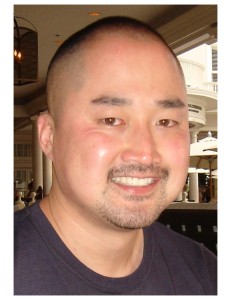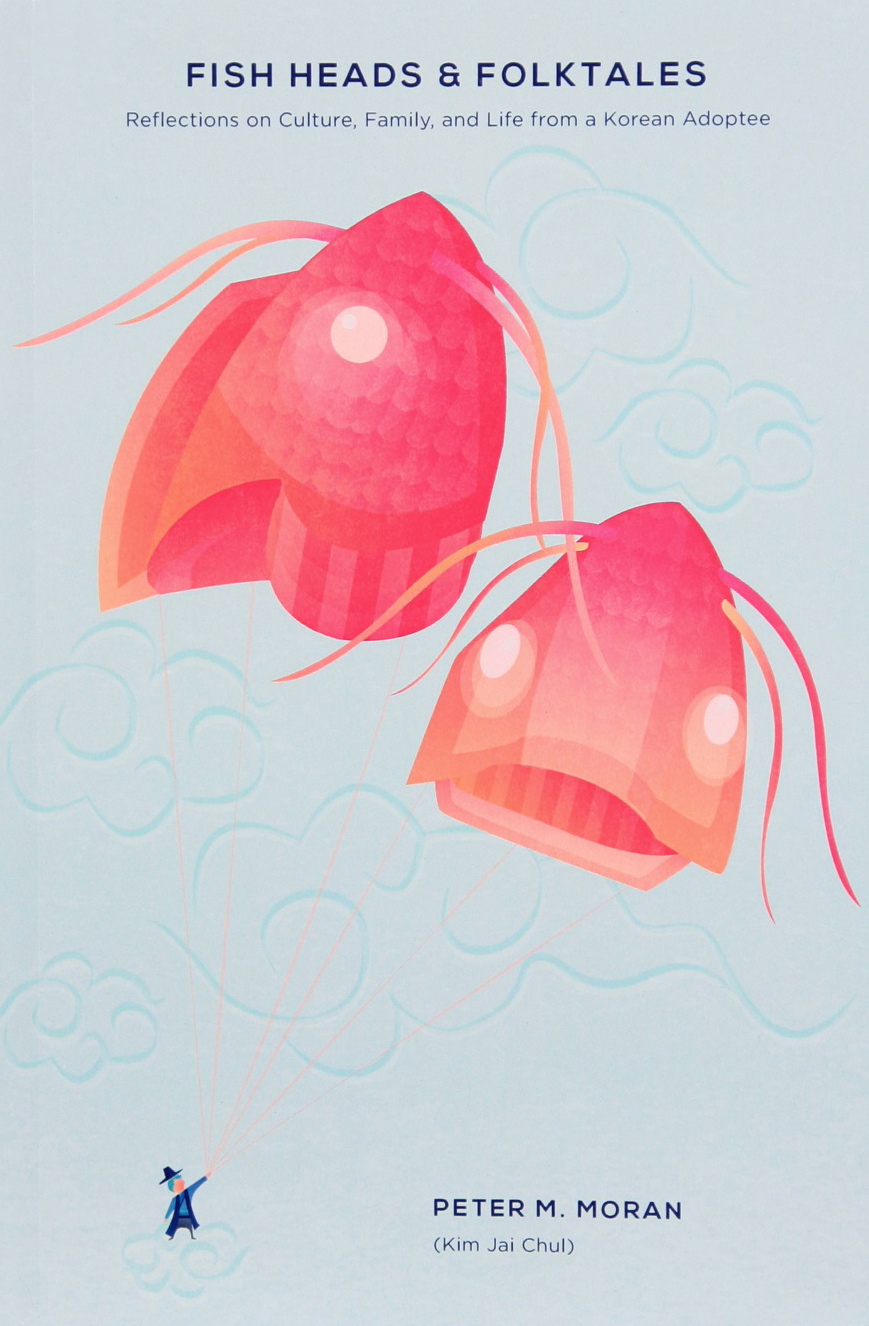Peter Moran was born in Seoul, South Korea and was adopted by an American family at the age of seven months. Raised with the couple’s biological daughter and three more adopted siblings, Peter embarked on a lifetime of self-discovery. In his autobiography, Fish Heads & Folktales, Peter takes us on his personal journey growing up as an adopted Korean and returning to his roots. This is a collection of entertaining and thoughtful short stories of his experience and the importance of family and finding inner peace.
I had first met Peter with a story that I was working on a couple of years ago. Based in New York, Peter and I emailed several times about projects and ramen… us asians love talking about food! I recently the opportunity to speak with Peter about Fish Heads & Folktales and about life growing up in an american family.
Growing up in a family with four adopted siblings must have been fun! It seems like your parents were respective of each child’s heritage. What were some of the fun experiences as a child in this family?
Interestingly, it was just plain fun growing up with a family of five kids regardless of four of us being adopted. Personally, I didn’t really think of my brother and sisters as adopted or not, Korean, Indian or Caucasian. When you live and grow up with someone, you just end up seeing them as siblings. We had plenty of fun just being normal kids!
We did however have special experiences, as my parents plugged themselves into the local adoptive families community wherever we lived. This gave us a lot of opportunities to attend various heritage camps and get-togethers that allowed us to connect with other adopted kids.
One of the best experiences about growing up in a multi-racial family with a mom who loved to cook was the food! My mom would experiment with Korean and Indian cooking (in addition to German). For our birthdays, we would get to choose a special dinner, and I remember occasionally enjoying samosas and Indian food, as well as Korean food on my birthday.
This is a very personal story of your life. What would you want adoptive parents to know?
I had a positive adoption experience, as my parents supported and encouraged me to explore my Korean identity. For this, I’m grateful. As adopted kids get older, it’s important for adoptive parents to make sure they listen to viewpoints about the adoption experience from the voice of their adopted children — it may or may not match their own viewpoint. This isn’t necessarily negative, in fact, discussing the issues can be very healthy.
It’s important to communicate openly about adoption issues such as birth parent searches and feelings that may arise from adoptees that can range from anger to sadness about their adoption. These feelings are natural and shouldn’t be swept under the rug. Also, I’d encourage adoptive parents to do what they can to help their adopted children understand, appreciate and explore their birth culture. Don’t force it on them, but make it available.
When did you realize that you wanted to search for your biological mother and did you have any hopes on the outcome?
I don’t think there was ever an exact moment in time where I decided that I had a mission to search for my birth mother. When I was growing up, it was never a priority, and there was even a time where I didn’t really care at all.
Even when I went back to Korea for the first time since I was 7 months old, I didn’t have any high hopes for an outcome. I knew the chances of finding anything were low, so I just went with an attitude of “what happens, happens.” What I ultimately did find was interesting though, which I share about in the book!
What are some of the stereotypes of adopted children — and what do you want people to understand?
Rem Peter Moran was born in Seoul, South Korea and was adopted by an American family at the age of seven months. Raised with the couple’s biological daughter and three more adopted siblings, Peter embarked on a lifetime of self-discovery. In his autobiography, Fish Heads & Folktales, Peter takes us on his personal journey growing up as an adopted Korean and returning to his roots. This is a collection of entertaining and thoughtful short stories of his experience and the importance of family and finding inner peace.
I had first met Peter with a story that I was working on a couple of years ago. Based in New York, Peter and I emailed several times about projects and ramen…hey, us asians love talking about food, right? I recently the opportunity to speak with Peter about Fish Heads & Folktales and well, about life!
You’ve found the love of your life with a beautiful Korean woman, what has she taught you about the culture?
Korean dramas! No seriously, Becky has really helped me embrace my Korean side — even when the hate part of my love/hate relationship with Korean culture takes over. Even though she and her siblings are just as “Americanized” as I am, I’ve been able to learn so much about Korean culture through her and her family — from the food and bits of Korean history, to wedding and holiday customs, to funny Korean superstitions. For instance, I never knew you could supposedly die from sleeping in a room with a fan on and the door closed!
What are you now more accepting of — in life?
I realized a long time ago that you can never really change other people, you can only change yourself. I used to be more sensitive to Asian racial stereotypes, but now I’m able to just laugh most of it off.
I’ve always accepted the fact that I was adopted and that I have flesh and blood out there I’ll probably never know. Sure, there’s always something there — a biological pull in all of us to want to know our roots — but for me I’m still be happy even if I never know. I’m sure it was easier for me because I was adopted as an infant and had supportive adoptive parent, but the past is the past, and you just have to make the best out of life that you can.
 Fish Heads & Folktales is a beautiful and personal memoir by Peter M. Moran. For more information and to order, visit www.fisheadsandfolktales.com
Fish Heads & Folktales is a beautiful and personal memoir by Peter M. Moran. For more information and to order, visit www.fisheadsandfolktales.com
The book is also available on amazon.com

Leave a Reply